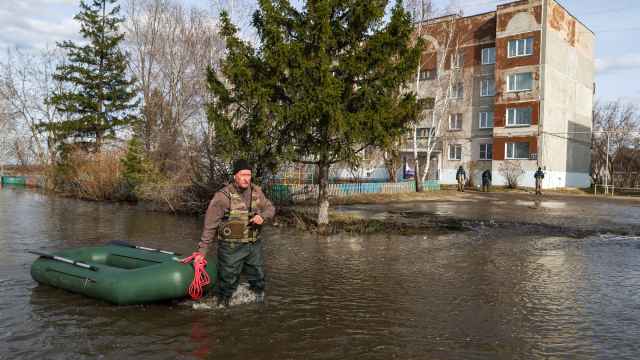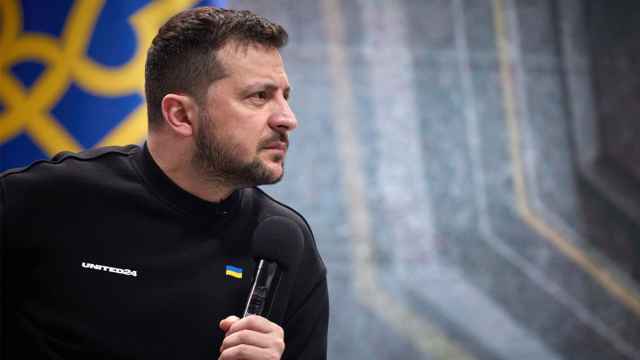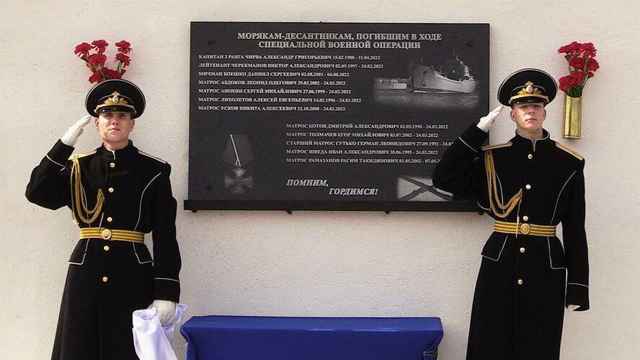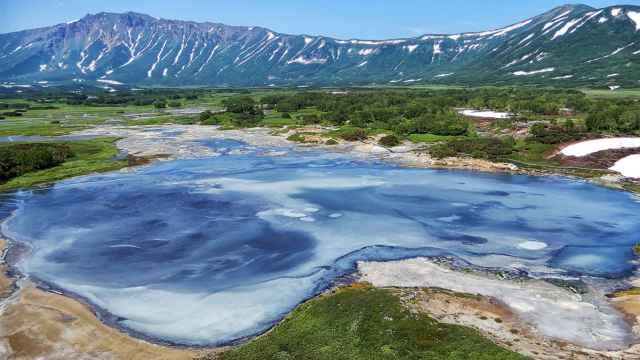Tatyana was small, blonde and 60 years ago. Her face was impassive as she stood before our class and related: "My parents were born in the 1930s when millions of people were starving from a horrible famine in Ukraine. It was caused by Stalin's compulsory collectivization, which forced the peasants to surrender their entire grain harvest to the government. Then in 1941, when the Great Patriotic War swept over Europe, the Nazis occupied our country. But after the war was over, Stalin declared that Soviet citizens in occupied lands had betrayed the U.S.S.R. and had collaborated with the enemy. So, my father and mother were arrested and put into a gulag in Siberia for 10 years. I was born in that camp while my mother was still imprisoned. But my parents loved me, and I had a normal, happy childhood."
The amalgamation of being born in a gulag as part of a "normal, happy childhood" was so ludicrous to me I could not hide my astonishment. However, I knew her story was not unique, nor was it the worst I had ever heard in my classes here in Russia.
A stranger walking into our classroom would have observed a large group of attractive professionals: teachers, psychologists, doctors, businessmen and women, economists, engineers, accountants, musicians, artists, students and professors. Citizens of the former Soviet Union, they were not only from Moscow and St. Petersburg, but also from the far north of Arkhangelsk to the south Caucasus region and from Kazakhstan to Ukraine.
No one would have ever suspected the deep suffering and generational history of severe trauma that lay beneath their polished exteriors. As the days passed and their pain began to surface, no one was more shocked than the participants at the enormity of the violence and the startling consistency of the stories that emerged. They had become so accustomed to abuse, neglect, deprivation and brutality that it became normal for them. They had no concept of how appalling it was nor how common.
Some of their statements were:
"My father was a strong Party leader — compassion and empathy were foolishness to him."
"My father was only 11 when the Great War ended. His father had been killed by the Nazis, so my father became the caretaker of his mother and two younger sisters. He had to steal food to survive."
"My mother came from a noble family, and her parents were killed by the Bolsheviks in 1918. She was sent to an orphanage where she was constantly abused for being a child of "the enemy of the people."
"My grandfather was declared a kulak and sent to a gulag when my mom was 2 months old. She and her mother lived in Ukraine during the Nazi occupation and they suffered greatly during that time. My father's family experienced great trauma from the war and the Soviet system. My father became schizophrenic when I was a child."
"The shadow of my family's past so affects my life; it hugs me until I can hardly breathe."
Out of 40 participants: Seven had a close family member become psychotic. Twelve were sexually abused. Thirteen were severely beaten by a parent as a child. Five saw their fathers regularly beat their mothers. Twenty-one had close family members who were alcoholic — often through several generations. Three had grandfathers who died in World War II. Four had parents and grandparents living under Nazi occupation in World War II. Seven had parents or grandparents who were declared "enemies of the people" and sent to gulags. Four experienced starvation and famine as children. Six were left alone as infants, toddlers and small children while parents worked for the State. Five had immediate family members commit suicide. Three were hospitalized for severe depression.
These people are educated, intelligent professionals. If such a high incidence of trauma, violence and death transpires in this stratum, just envision the alcoholism and abuse that occurs in thousands of villages across this country's nine times zones. Violence and addictions are pandemic in villages where the one factory has closed, leaving people with no options to move elsewhere.
Yet, if you were to ask almost anyone on the streets of Moscow or the provinces about their childhood most would say it was "happy" and "normalno." After all, they survived.
When I dealt with violent offenders in the Arizona Prison System, I was told that being severely abused as children was the common denominator among these men. Also, if the abuse started when they were very young, it was violent, it happened regularly and or it was committed by a close family member, they then became "an offender in training."
I think of this when listening to the stories of family violence that have occurred here on a consistent basis and how they also are exacerbated by years of war and 70 years of a victimizing Soviet system. An evaluation would predict increased violence, addictions and possible psychosis or suicide. Yet despite the prevalence of the traumas I listed from my class, Russians continue to function and convince themselves they had a happy childhood.
This denial of reality was fostered by the Soviet system, which continually fed their population propaganda stating everything was wonderful. People were lied to so often it became difficult to discern veracity. The abjuration of truth became a habit politically, personally and professionally.
But denial comes with a very high price. When the truth regarding pain is not addressed, it spawns deep psychological wounds that fester into violence, addiction, dysfunction and physical illness.
Fortunately, many people are now boldly addressing the nakedness of their history and are lancing the wounds created through generations. This is accomplished in numerous ways: researching their family through organizations such as Memorial, seeking personal and family therapy, attending classes such as I teach or other helpful methods. As their wounds begin to heal, they now are able to discern what constitutes a healthy legacy for their children. They do not want their descendants to inherit their "happy childhoods." They want them to live in a country led by men and women who live and speak the truth.
Numerous factors, such as freedom to travel, have improved dramatically since the fall of the Soviet system — no one denies that. Yet many elements continue to evoke "the shadow of the past." The government today consistently declares admirable values but their behaviors often are radically incongruent. This disparity plays out before us daily. Yet, only a few are courageous enough to speak — with their loved ones and in the streets.
It would be a tragedy if one day Tatyana's granddaughter said, "I was born in a gulag, but I had a normal, happy childhood."
Marilyn Murray is an educator specializing in the treatment of trauma, abuse and deprivation, with more than 2,000 people attending her classes in Russia over the past 10 years. Her latest book, "The Murray Method," is available in English and Russian.






